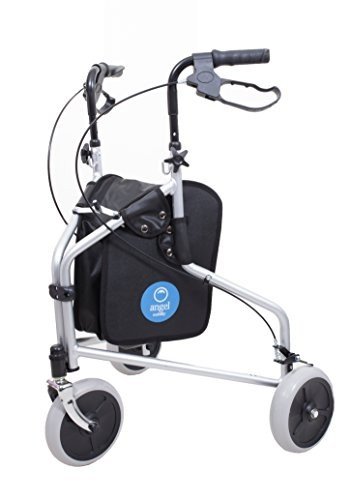Mobility Scooters: A Comprehensive Guide
Mobility scooters have ended up being a vital mode of transport for many individuals dealing with mobility difficulties. This post checks out the different aspects of mobility scooters, including their types, advantages, functions, and a guide for prospective purchasers.
Understanding Mobility Scooters
Mobility scooters are electrically powered devices created for individuals with restricted mobility. They provide a way of transport for individuals who may have trouble strolling but still wish to maintain their self-reliance. They come in different designs and functions to cater to a large range of needs.
Types of Mobility Scooters
Mobility scooters can normally be categorized into three main types:
| Type | Description | Best For |
|---|---|---|
| Compact Scooters | These are small and lightweight, perfect for inside and short journeys. | Users with restricted storage area or those who travel typically. |
| Mid-size Scooters | A balance between mobility and stability, appropriate for both indoor and outdoor use. | Those who need to cover a variety of terrains. |
| Durable Scooters | Big and robust, developed for rugged outside use and much heavier individuals. | Users requiring additional weight capability or going off-road. |
Secret Features of Mobility Scooters
The choice of mobility scooter frequently depends on the features that align with private needs. Here are some of the key features to consider:
- Weight Capacity: Mobility scooters feature various weight limitations. It is crucial to select a scooter that can effectively support the user's weight.
- Variety: The range a scooter can take a trip on a single charge varies. Depending upon user needs, one may go with scooters with a series of up to 40 miles.
- Speed: Most mobility scooters can reach speeds between 4 to 8 mph. Consider what speed is comfortable and safe for the designated environment.
- Turning Radius: A compact turning radius is necessary for indoor usage, permitting much easier navigation in tight spaces.
- Battery Type: The type of batteries used can impact the scooter's efficiency. Lead-acid and lithium-ion batteries are the most typical.
Advantages of Using Mobility Scooters
The advantages of mobility scooters extend beyond simply transport. Some key advantages include:
- Independence: Users can navigate their environment without depending on caregivers, promoting self-reliance and self-esteem.
- Health Benefits: Using a scooter can encourage outside activity, causing physical and psychological health enhancements by lowering feelings of seclusion.
- Convenience: Scooters can quickly be operated in numerous environments, whether inside, in shopping malls, or outdoors.
Essential Considerations When Buying a Mobility Scooter
When acquiring a mobility scooter, a number of factors to consider can assist make sure that you choose the right model:
Assess Individual Needs:
- Mobility level: Consider just how much help the person will require.
- Variety of use: Determine where the scooter will mostly be used (indoors, outdoors, on rough terrains, etc).
Test Drive:
- Always test drive numerous models to find an ideal fit. Take note of convenience, ease of steering, and the scooter's responsiveness.
Evaluation Safety Features:
- Look for scooters with appropriate safety functions like lights, signs, and anti-tip styles.
Examine Warranty and Service Options:
- A trustworthy warranty and available service choices are vital for long-term use.
Frequently Asked Questions about Mobility Scooters
1. How quick do mobility scooters go?Mobility scooters typically have speeds ranging from 4 to 8 miles per hour, with most developed for security rather than high-speed travel. 2. Exist weight restrictions on mobility scooters?Yes, mobility
scooters come with specific weight limits, typically varying from
250 lbs to over 500 pounds, depending on the model. 3. Can mobility scooters be utilized indoors?Certain models, particularly compact scooters, are particularly developed for
indoor use and are easier to maneuver in tight spaces. 4. How often do the batteries require to be replaced?Battery life can vary based on use, but generally, with proper care, batteries might last in between 1 to 3 years before requiring replacement
. 5. Are mobility scooters covered by insurance? simply click the up coming website can differ, however some insurance coverage plans, consisting of Medicare and Medicaid, may cover part of the expense. It's recommended to examine with specific insurance suppliers. Mobility scooters work as a
valuable tool for lots of individuals, enabling them to maintain
their liberty and self-reliance. By understanding the various types and functions of mobility scooters, people can make educated choices customized to their particular needs.
Whether used for errands, socializing, or leisurely activities, mobility scooters can boost the lifestyle for those with mobility limitations. Investing in a mobility scooter is a decision that can significantly impact an individual's every day life. Therefore, people must carefully assess their alternatives and select a design that best lines up with their lifestyle and mobility requirements
.

